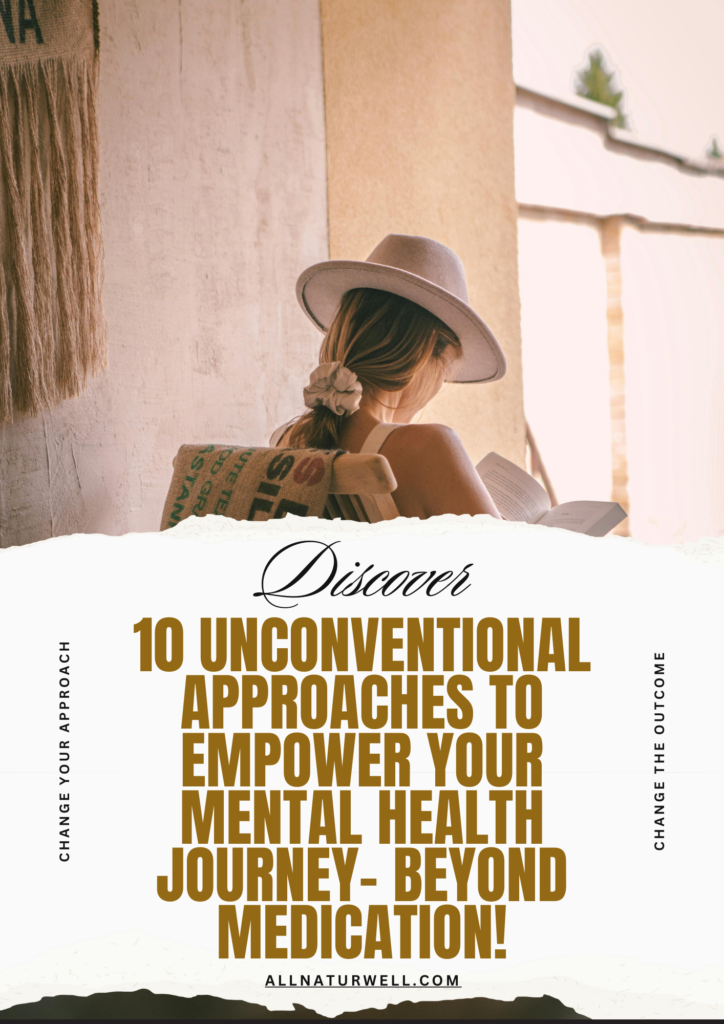The Link Between
ADHD and Norepinephrine
ADHD and Norepinephrine: Explore the Missing Link in Your Mental Health
Introduction
When it comes to ADHD, dopamine often takes center stage in discussions about focus and attention. But there’s another key player many overlook – norepinephrine. This hormone and neurotransmitter is deeply involved in regulating alertness, focus and emotional responses, making it a crucial part of the ADHD puzzle. While dopamine imbalances are well-known, norepinephrine could be the missing link in understanding your symptoms and unlocking a more comprehensive approach to treatment.
ADHD and Norepinephrine
The Role of Norepinephrine in ADHD
Norepinephrine is often referred to as adrenaline’s close cousin. It plays a dual role in both your body’s stress response and your brain’s ability to stay alert, focused and responsive to the world around you. But what happens when norepinephrine is out of balance?
For those with ADHD, norepinephrine levels may be lower than average, leading to difficulty concentrating, focusing and managing emotions. When there isn’t enough norepinephrine available, tasks that require sustained attention or mental effort can feel exhausting and overwhelming. This lack of mental stamina is what makes ADHD more than just a “focus” issue – it’s a challenge to stay engaged and energized, especially during stressful or demanding situations.
How Norepinephrine Imbalance
Affects ADHD Symptoms
An imbalance in norepinephrine can make ADHD symptoms more intense. This could look like:
- Difficulty Staying Alert: You may find yourself spacing out or unable to remain mentally present, especially during repetitive tasks.
- Emotional Dysregulation: Heightened arousal and anxiety may follow you through the day, making it hard to stay calm or manage stress effectively.
- Impulsivity and Hyperactivity: Without adequate norepinephrine, it’s harder to suppress impulsive behaviors or manage the urge to fidget and move.
- Mood Disorders: Imbalances in norepinephrine are often linked to mood disorders such as anxiety and depression, which commonly co-occur with ADHD.
ADHD and Norepinephrine
Genetic Testing and Norepinephrine: What It Can Reveal
If you’ve been diagnosed with ADHD or suspect you may have it, genetic testing can give you a clearer picture of what’s going on behind the scenes. By examining the genes responsible for norepinephrine regulation, you can gain insight into whether your body is producing too much, too little, or metabolizing norepinephrine inefficiently.
Key genes that can be tested include:
- COMT: Involved in the breakdown of norepinephrine, dopamine, and other neurotransmitters. Certain variations in this gene can cause a slower breakdown, leading to heightened stress responses.
- MAO-A: This gene affects how norepinephrine and serotonin are metabolized. Imbalances here can impact mood and anxiety levels.
- DBH: This gene regulates the enzyme responsible for converting dopamine to norepinephrine. Variations in DBH may result in reduced norepinephrine production, contributing to ADHD symptoms.
Through genetic testing, you’ll gain actionable insights into how your body handles norepinephrine and whether imbalances could be worsening your ADHD symptoms.
What Is Genetic Testing
Genetic testing is a medical process that analyzes your DNA to identify changes, anomalies or mutations in your genes, chromosomes and/or proteins that may influence your physical and mental health, predispositions to certain conditions and identify variations (mutations) in genes that can cause or increase the risk of genetic disorders.
Why Genetic Testing Matters
The information gained from genetic testing may be helpful in a number of ways for the neurodivergent, such as diagnosing genetic mutations, methylation disruptions and identifying personalized nutrient deficiencies that may be negatively influencing their mental health.
How Genetic Testing Works
Genetic testing works by analyzing a sample of your DNA, usually obtained through a saliva or blood sample. This sample is then examined in a laboratory to identify any genetic mutations, anomalies, or variations that could impact your health and wellness.
ADHD and Norepinephrine
Holistic Approaches to Balancing Norepinephrine
Once you understand how norepinephrine plays a role in your ADHD, the next step is learning how to naturally support this neurotransmitter. Here are a few lifestyle changes that can help bring balance to your norepinephrine levels:
- Regular Exercise: Physical activity is one of the most effective ways to increase norepinephrine naturally. Even a short walk or quick workout can boost alertness and improve focus.
- Mindful Stress Management: Chronic stress can deplete norepinephrine. Practice mindfulness techniques like meditation, deep breathing, or yoga to reduce your stress levels and support balanced neurotransmitters.
- Healthy Diet: Foods rich in tyrosine (like eggs, cheese, and fish) help the brain produce norepinephrine. Eating a balanced diet full of lean proteins, fruits, and vegetables can keep norepinephrine levels stable.
- Adequate Sleep: Sleep deprivation reduces norepinephrine production. Make sure you’re getting at least 7-9 hours of sleep to support your brain’s ability to regulate norepinephrine.
Why Addressing Norepinephrine Can Enhance ADHD Treatment
If you’re only focusing on dopamine in your ADHD management, you might be missing a huge part of the picture. By addressing norepinephrine imbalances, you can improve your alertness, reduce emotional volatility and manage stress more effectively. This holistic approach helps create a more balanced mental state and could enhance the effectiveness of any current ADHD treatments you’re using.
Conclusion:
Norepinephrine is an often-overlooked piece of the ADHD puzzle. By understanding how this powerful neurotransmitter influences focus, attention and emotional regulation, you can take a more comprehensive approach to your mental health. Whether through genetic testing or holistic lifestyle changes, gaining control over your norepinephrine levels can be a game-changer in your ADHD journey. Ready to learn more? Dive into genetic testing and discover if norepinephrine imbalances are the missing puzzle piece to your mental health wellness.
You Might Be Interedted in
10 Chapters / 10 Topics
Genetic Testing and The Real You: Explore the world of genetic testing and how it can reveal insights into your mental health. Learn how genetic variations may impact conditions like ADHD, bipolar disorder and/or rejection sensitive dysphoria (RSD), empowering you to take control of your well-being.
Pyroluria: Uncovering Hidden Factors: Discover the concept of pyroluria and its potential connection to mental health issues like ADHD. Learn about the symptoms of pyroluria and how testing for this condition can shed light on underlying factors contributing to mental dysregulation.
ADHD and COMT Gene Mutation: Dive into the role of genetics in attention deficit hyperactivity disorder (ADHD) and explore the impact of the COMT gene mutation on dopamine regulation. Learn how genetic testing can provide valuable insights into personalized treatment approaches for ADHD.
AND SO MUCH MORE….
- Bipolar Disorder: The Cortisol, Thyroid Hormone Link
- Hydrogen Water: A Revolutionary Solution
- The Power of Mineral Sea Salt
- Methylation & Methylated Supplements
DON’T MISS A CHAPTER…
Disclaimer: The information and/or products mentioned in these article are provided as information resources only and are not to be used or relied on to diagnose, treat, cure or prevent any disease. The statements made in this article have not been evaluated by the Food and Drug Administration. Any products mentioned are not intended to diagnose, treat, cure, or prevent any disease, but rather to be considered as an informational resource only to encourage critical thinking and personal research. The information in this article is intended for educational purposes only. The information is not intended to replace medical advice offered by licensed medical physicians. Please consult your doctor or health care practitioner for any and all medical advice.
Sign up for our weekly newsletter. it's free!

52 Weeks, 52 Topics! Get Our Latest ‘Stay Well’ Newsletter Every Monday And Start Your Week Off AllNaturWell. A New Tip, A New Study Revealed, A New Product Reviewed. Get It Right To Your Inbox Weekly. No Need To Wait. It’s Free!





